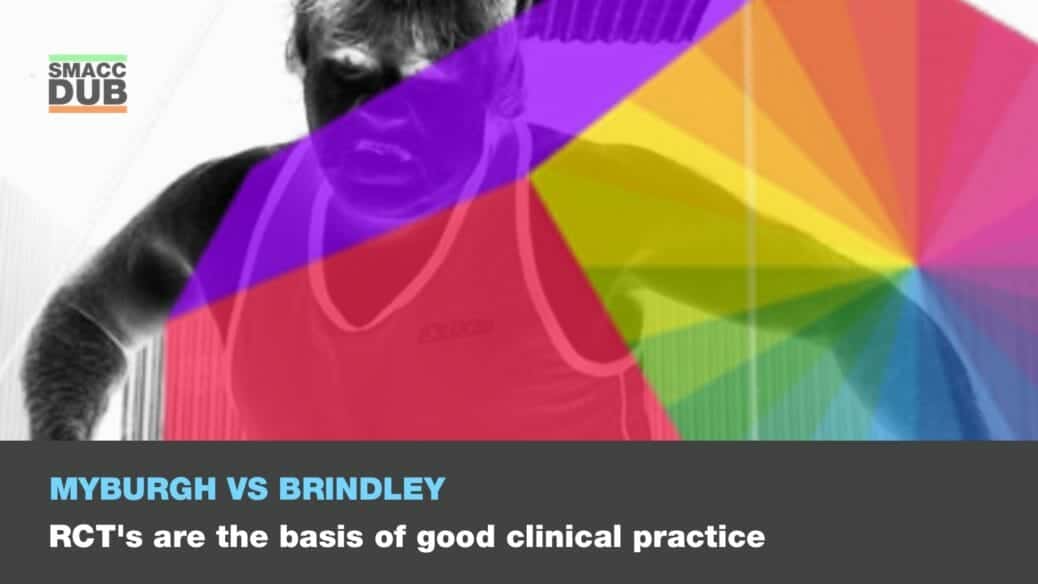Peter Brindley
This speaker is pretty certain he is going to lose…but he’s going to go down fighting. He will argue against the mighty Dr John Myberg (whom, incidentally, he admires mightily). RCTs do certainly matter, but clinical judgment and prompt bedside attention matters far more. Moreover, RCTs so often fail to address the questions that really matter. RCTs also commonly fail to improve quality, effectiveness, safety, and reliability in modern complex acute medical care. A vote against the blinkered focus on RCTs is a vote for better (not biased) patient care. Myberg and his myopics must be defeated…come join me!
John Myburgh
Medicine is a complex craft. Acute medicine is more complex. Excellence is delivering effective acute care depends on recognising the broad base of basic sciences, clinical experience, and results of clinical trials. Central to all decisions has to be how these will benefit the patient – both in the short term as well and longer term so that survivors of acute illness are left with the best possible outcome for that patient, their caregivers and the community at large. This is a daunting concept under time-limited, information-limited conditions. Clinicians are often left with uncertainty about the impact of decisions and rely on short-term surrogate measurements to justify treatment options. Consequently, assessing outcomes are invariably confounded by associations that bear little relationship to causation or biological plausibility. Such confounders are often demonstrated in observational studies and RCTs with low levels of internal validity, particularly those conducted in single centres and/or driven by protagonists of a particular intervention. Carefully conducted RCTs with high levels of internal validity – those that produce believable results from rigorous study design and those that produce results that are generalisble to specific patient populations remain the only way to mitigate bias and produce clinically-relevant answers to improve patient-centred outcomes. Critical Care Medicine leads the way in producing high-fidelity RCTs that have fundamentally changed clinical practice, not only in terms of producing better patient-centred outcomes, but also by producing unequivocal evidence to stop or avoid using of previously harmful treatments that had been enthusiastically embraced by clinicians and guideline developers. Such examples of benefit include the CRASH-2 and ARDS-net trials, and of preventing harm, the SAFE, NICE-SUGAR, RENAL, CHEST, DECRA and FEAST studies among others. The net impact of these pivotal trials has been the prevention of millions of deaths and the saving of millions of dollars. Such is the basis of GOOD clinical practice and these trials must be seen as a source of knowledge, science and pride … that ultimately improve patient outcomes.

























